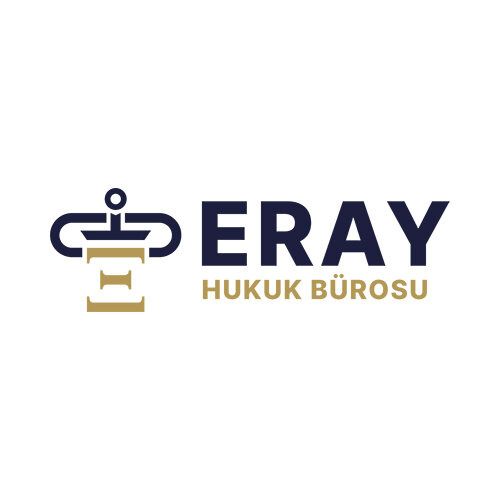Best Outsourcing Lawyers in Turkey
Share your needs with us, get contacted by law firms.
Free. Takes 2 min.
Or refine your search by selecting a city:
List of the best lawyers in Turkey
About Outsourcing Law in Turkey
Outsourcing in Turkey has become increasingly significant, particularly as businesses seek cost-effective solutions and specialized expertise. The country offers a favorable environment for outsourcing due to its strategic geographical location, competitive labor costs, and well-educated workforce. Outsourcing can involve various services, including Information Technology, customer support, and manufacturing. The legal framework governing outsourcing in Turkey is influenced by its commercial, labor, and data protection laws, ensuring that both local and international businesses can engage in outsourcing activities with legal security and transparency.
Why You May Need a Lawyer
Engaging a lawyer when considering outsourcing in Turkey can be crucial in several scenarios. Firstly, when drafting and negotiating contracts to ensure that terms are clear and enforceable, safeguarding both parties' interests. Secondly, ensuring compliance with data protection regulations such as the Turkish Data Protection Law, particularly when personal data is processed or transferred. Additionally, a lawyer can be essential when resolving disputes related to contractual obligations or intellectual property rights. Furthermore, legal counsel may be required to navigate tax implications and employment laws involved in transitioning jobs to outsourced services.
Local Laws Overview
The Turkish Commercial Code is fundamental to outsourcing arrangements, providing the legal framework for business operations. The Labor Law of Turkey also plays a significant role, especially concerning the rights and obligations of employees when services or jobs are outsourced. Intellectual Property Law is another critical component, preserving the proprietary information and trade secrets involved in outsourcing contracts. Moreover, compliance with the Law on Protection of Personal Data is essential when handling personal data during outsourcing processes to ensure data privacy and security. Adherence to these laws ensures a legally sound outsourcing process.
Frequently Asked Questions
What is the primary legislation governing outsourcing in Turkey?
The primary legislation includes the Turkish Commercial Code, the Labor Law, and the Law on Protection of Personal Data.
Is it necessary to have a written contract for outsourcing?
Yes, a written contract is highly recommended to clearly define the scope, responsibilities, and terms of the outsourcing arrangement.
What are the data protection requirements for outsourcing in Turkey?
Compliance with the Turkish Data Protection Law is mandatory, which requires consent for data processing and adherence to data security principles.
Can foreign companies outsource services to Turkey?
Yes, foreign companies can outsource services to Turkey, and they must comply with Turkish commercial and data protection laws.
How are intellectual property rights managed in outsourcing contracts?
Intellectual property rights should be explicitly outlined in the contract, specifying ownership, usage, and confidentiality obligations.
Are there any restrictions on outsourcing in certain industries?
Yes, certain industries, such as defense and banking, have specific regulations and restrictions relating to outsourcing practices.
What are the taxation implications of outsourcing?
Tax implications can vary based on the services outsourced and the contractual terms; consulting a tax expert is advisable for precise guidance.
How can disputes in outsourcing agreements be resolved?
Disputes can be resolved through negotiation, mediation, or legal arbitration, as specified in the outsourcing contract.
Is employee consent required when jobs are outsourced?
Employee consent may not be required, but employers must comply with labor laws and inform employees about any significant changes.
How do foreign exchange regulations affect outsourcing transactions?
Foreign exchange regulations are vital for cross-border transactions; consulting a financial advisor may be necessary to ensure compliance.
Additional Resources
For further legal insights and assistance, consider consulting resources such as the Turkish Union of Chambers and Commodity Exchanges, the Ministry of Trade, and legal publications on Turkish commercial and labor laws. Professional legal associations and organizations in Turkey, like the Istanbul Bar Association, can also provide guidance.
Next Steps
If you require legal assistance in outsourcing, consider reaching out to a specialized lawyer or law firm with expertise in Turkish commercial and labor law. Start by gathering key information about your outsourcing needs and objectives, then consult a professional to ensure that your contracts are robust and compliant with local regulations. Comparing several legal service providers can also help you find the right lawyer to support your business goals seamlessly.
Lawzana helps you find the best lawyers and law firms in Turkey through a curated and pre-screened list of qualified legal professionals. Our platform offers rankings and detailed profiles of attorneys and law firms, allowing you to compare based on practice areas, including Outsourcing, experience, and client feedback.
Each profile includes a description of the firm's areas of practice, client reviews, team members and partners, year of establishment, spoken languages, office locations, contact information, social media presence, and any published articles or resources. Most firms on our platform speak English and are experienced in both local and international legal matters.
Get a quote from top-rated law firms in Turkey — quickly, securely, and without unnecessary hassle.
Disclaimer:
The information provided on this page is for general informational purposes only and does not constitute legal advice. While we strive to ensure the accuracy and relevance of the content, legal information may change over time, and interpretations of the law can vary. You should always consult with a qualified legal professional for advice specific to your situation.
We disclaim all liability for actions taken or not taken based on the content of this page. If you believe any information is incorrect or outdated, please contact us, and we will review and update it where appropriate.
Browse outsourcing law firms by city in Turkey
Refine your search by selecting a city.















